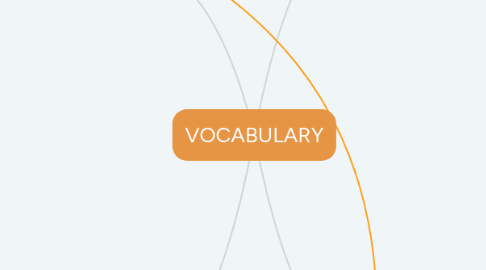VOCABULARY
by uFernanda Infante

1. Teaching Vocabulary
1.1. Bintz (2011) The ‘teachers’ help for students improve vocabulary by providing instruction that helps them to see the meaning and value of the words that allows them to study interesting and important words that come from speaking in the classroom’ (pp.47).
1.2. Harmer (2007) 'Teaching vocabulary is the major teacher art' (pp.229)
1.3. Thornbury (2002) The desirability of much higher vocabulary learning target is proponent throw the teaching methods.
2. Learning Strategies
2.1. Harmon, Wood & Kiser (2009) 'Vocabulary learning is a continual process of encountering new words in meaningful and comprehensible contexts’
2.2. Oxford (1990) Learner strategies can be defined as ‘actions, behaviors, steps, or techniques that students use, often unconsciously, to improve their progress in apprehending, internalizing, and using the L2’ (pp. 1).
2.3. Nation (2001) 1. Planning: Learners should know what their vocabulary goals are and choose what vocabulary to focus on in terms of their selected goals. 2. Sources: Learners have to be able to get information about the words. 3. Rrocesses: which is establishing vocabulary knowledge. It involves ways of remembering vocabulary and making it available for use (pp. 218-222).
3. Metacognitive Strategies
3.1. Chamot (2009) 'Executive processes used in planning for learning, monitoring ones’ own comprehension, production and evaluating how well one has achieved a learning objective’ (pp. 58).
3.2. Anderson (2002) ‘The use of metacognitive strategies activates one’s thinking and leads to improved performance in learning in general’ (pp. 3).
3.3. Cross & Paris (1988) ‘The knowledge and control that children have over their own thinking and learning activities’ (pp. 131).
4. Vocabulary for Oral Productions
4.1. Nation (2001) Vocabulary knowledge and language use are interconnected.
4.2. Webster (1992) Developing the mastery skill will help learners to manage not only words and their definitions, but also to manage the language functions to develop a successful listenership in order to express their ideas effectively.
4.3. Nunan (1991) Vocabulary learning enables an efficient target language use.


